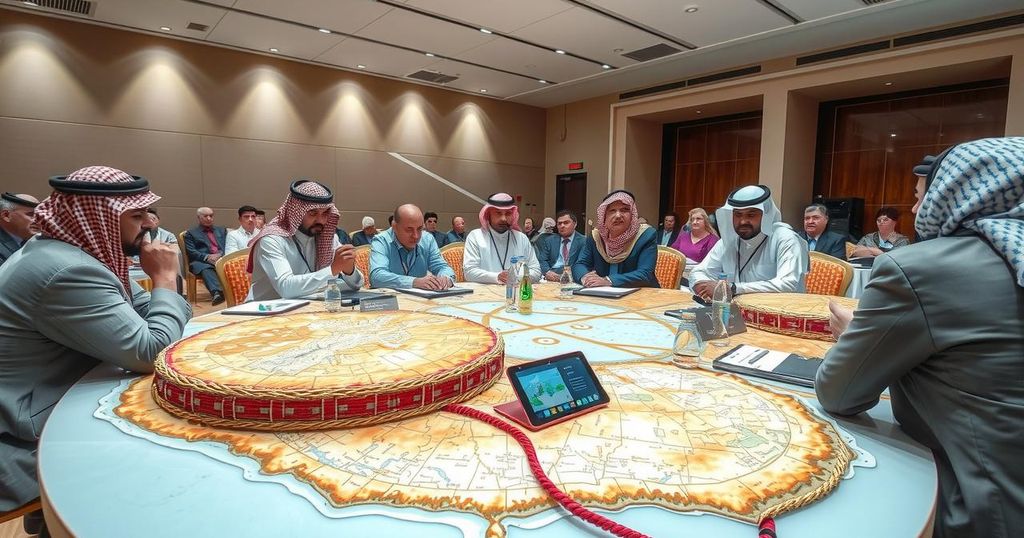UN Talks in Riyadh Conclude Without Drought Agreement Despite Urgent Needs
The UN talks in Riyadh ended without a drought agreement, signaling the need for further negotiations by COP17 in 2026. The discussions highlighted the global divide between developed and developing nations regarding binding protocols for drought preparedness, while funding for climate measures remains a major concern.
The recent United Nations talks hosted in Riyadh, Saudi Arabia, concluded without reaching an agreement on addressing the pressing issue of global drought. The twelve-day event marked the sixteenth Conference of the Parties (COP16) to the United Nations Convention to Combat Desertification (UNCCD) and has led to plans for a further global drought regime to be developed by COP17 in Mongolia in 2026. Despite intense discussions, parties—including 196 nations and the European Union—have stated that they require additional time to finalize strategies for combating drought effectively, particularly as it heavily impacts lower-income nations.
Global droughts are increasingly significant challenges currently facing the world, with estimates suggesting that they may affect up to 75 percent of the global population by 2050. Droughts fueled by environmental degradation cost over $300 billion annually. Previous climate negotiations on various issues have struggled to produce strong, binding outcomes, and discrepancies between the Global South and North have complicated discussions, particularly on financial responsibilities and frameworks to address climate change.
In summary, although COP16 in Riyadh saw some groundwork laid for addressing global drought, the failure to produce a binding agreement remains a setback for many nations, especially those most vulnerable to climate change. The commitment to create a drought regime by COP17 in 2026 offers hope, but the urgency of the situation necessitates swift and decisive action from all parties involved.
Original Source: www.aljazeera.com




Post Comment